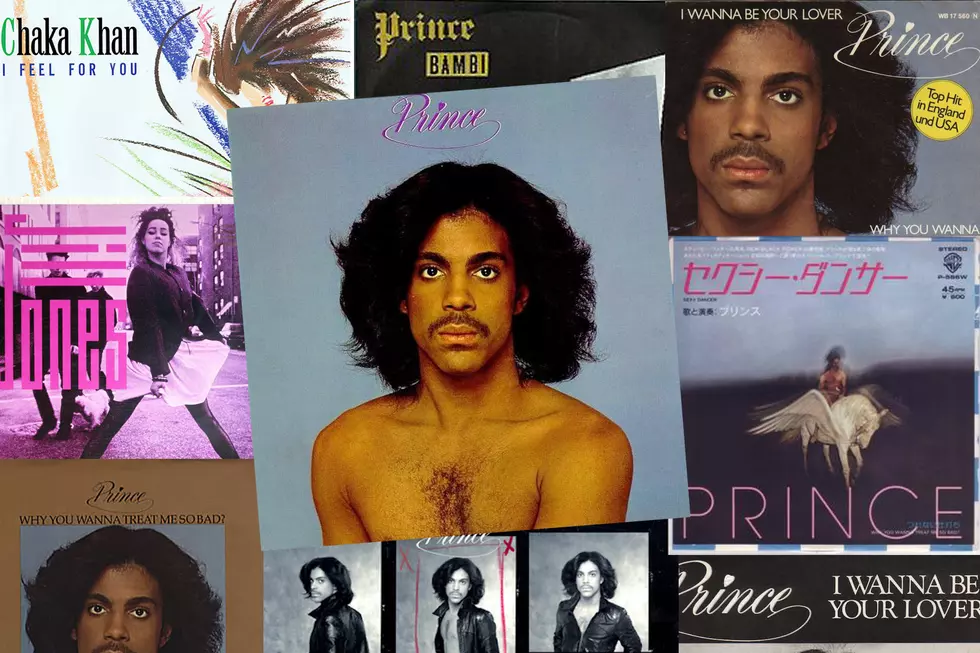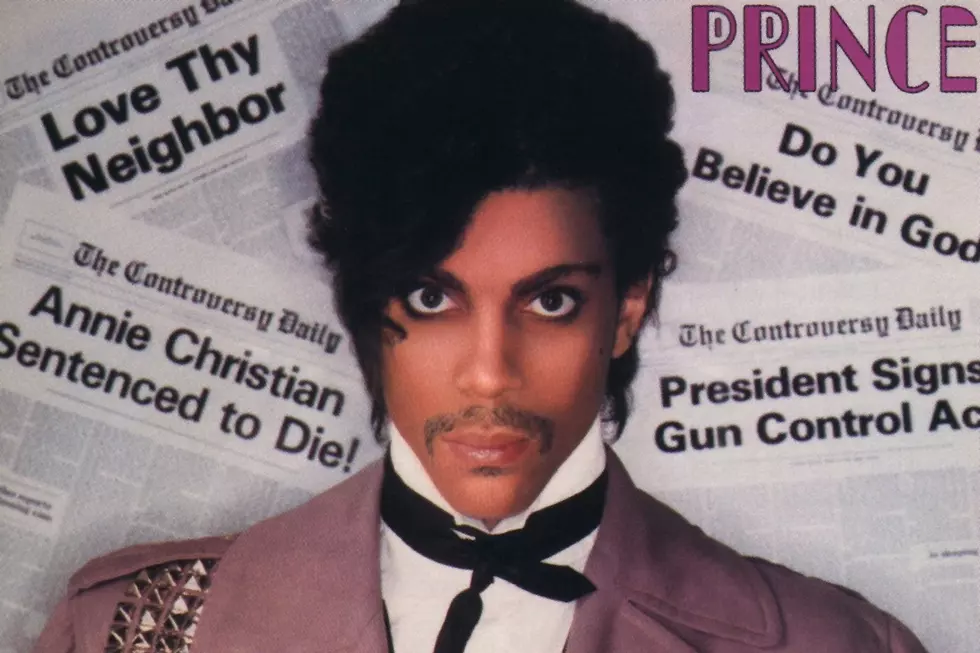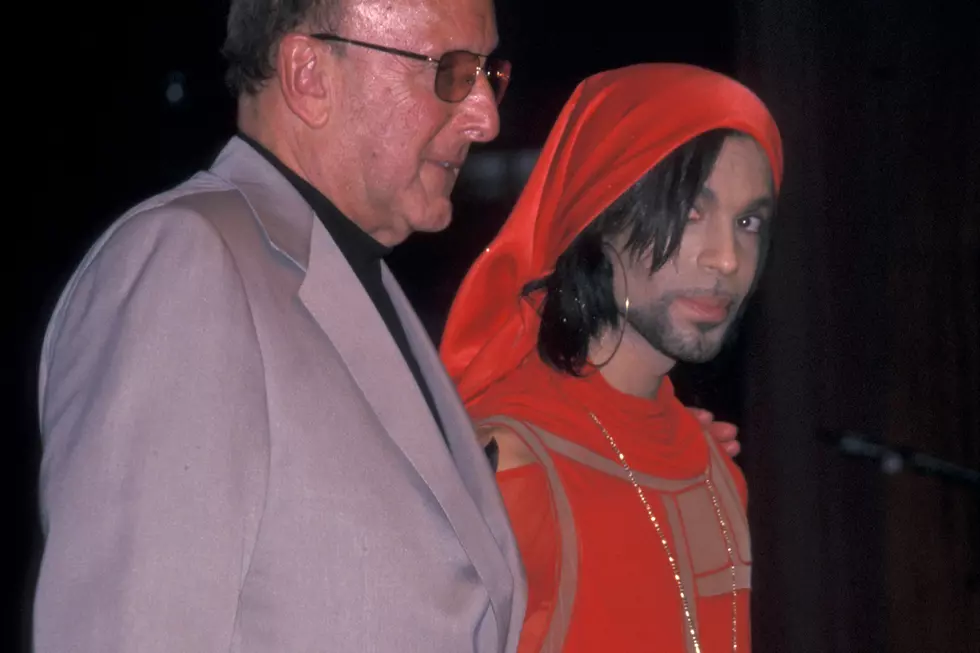How ‘Controversy’ Predicted Prince’s Entire Career: 365 Prince Songs in a Year
To celebrate the incredibly prolific, influential and diverse body of work left behind by Prince, we will be exploring a different song of his each day for an entire year with the series 365 Prince Songs in a Year.
“I just can’t believe all the things people say / Am I black or white? Am I straight...or gay?”
With those two lines, Prince addressed the questions that the public had about his personal life from the moment he broke through to stardom. At a critical crossroads in his career, he delivered “Controversy”, the first single from his fourth album, also entitled Controversy, in late summer 1981. The lyrics served as a mission statement, with Prince imagining a world in which differences in race, gender and sexual orientation didn’t matter.
Musically, “Controversy” split the difference between the styles he’d explored with the two albums that came before. 1979’s Prince was his commercial breakthrough, spawning the hit single “I Wanna Be Your Lover” and going platinum within months of release. While Prince’s image was already mysterious thanks to his “no interviews” stance, his fey demeanor and a puzzling Q&A with Dick Clark on TV’s American Bandstand, “I Wanna Be Your Lover” and most of the Prince album was tailor-made for radio and dance floors. Prince then gave a hint of the rebellious nature that would soon define him, and took a hard left turn.
Dirty Mind, released barely a year after Prince’s ascension to stardom, contained a few funky jams, but owed just as much if not more to the punk and new wave scene that gripped the underground in the late ‘70s and early ‘80s. With lo-fi production and daring subject matter, much of Dirty Mind wasn’t suitable for radio, and Prince’s interesting wardrobe choices (often consisting of a trench coat and bikini briefs) were off-putting to many culturally conservative black radio programmers and listeners.
While the album peaked at a middling No. 45 on the Billboard 200 and sold a fraction of what its predecessor sold, Dirty Mind did get the attention of the rock ‘n roll cognoscenti. Critical raves began to pour in as the calendar turned over to 1981, and Prince found himself anointed as a rock hero in the making. That February, Prince was the musical guest on NBC’s Saturday Night Live and received a four-and-half-star review in Rolling Stone. Prince was conscious of Dirty Mind’s somewhat polarizing effect, telling an interviewer, “I wanted to develop an audience that would see me as me and not just the guy with a top ten record," as recounted in Dance Music Sex Romance: Prince: The First Decade by Per Nilsen.
Recorded in the early summer of 1981, “Controversy” found Prince seamlessly blurring the lines between commercial star and critical artist, blending rock, funk, soul and pop in a way that would soon become his trademark. As with most past and future Prince songs, “Controversy” was largely written, produced and performed by the artist himself. New keyboard recruit Lisa Coleman was featured on the song, but only as a background vocalist. Featuring an irresistibly catchy rhythm guitar line and a funky enough bottom to groove dance floors and get airplay on black radio, “Controversy” became Prince’s highest-charting single since “I Wanna Be Your Lover”, peaking at No. 3 on the Hot Soul Singles chart and becoming his first song to hit the peak of Billboard’s Dance/Disco 80 list in tandem with its follow-up single “Let’s Work”. It parked at the top spot for eight weeks and was listed as 1982’s No. 2 dance single when the year-end results were tabulated.
In its expanded album version, “Controversy” became much more of an avant-garde funk/rock workout than a catchy dance single. The lyrics incorporated the Lord’s Prayer as well as a repeated chant that added an exclamation point to Prince’s worldview at the time: “People call me rude / I wish we all were nude / I wish there was no black or white / I wish there were no rules.”
Prince took pains to obfuscate his ethnic background early in his career, allowing the public to perceive him as multi-racial with the knowledge that he would otherwise be pigeonholed commercially. A 1983 Rolling Stone profile listed his father, John L. Nelson, as black and Italian, while Prince himself described his mother as "a mixture of a bunch of things."
Meanwhile, Dirty Mind songs like “When You Were Mine” and “Sister” hinted at themes of queerness. These deliberate ambiguities were corrected by Prince later in his career, but at the time, leaving those questions in “Controversy”’s first verse open-ended added to the artist’s considerable mystique. In a posthumous appreciation in Time, Jim Farber wrote that Prince, from the beginning of his career, "was a pop exception, a man of transcendence in a world of categories and cliches. Though, like every artist, he came from a certain time, place and culture, Prince pushed beyond those factors to become one of the last lingua franca pop stars, someone who could make anyone, anywhere dance."
If there is one song that sums up the general Prince-ness of Prince (particularly what is widely considered to be peak-era Prince), it’s “Controversy”. It’s virtuosic, it’s danceable, it’s a little strange, it’s sexual, it’s religious. Author Toure wrote, also in Time, “('Controversy') is an important song to build Prince as a person who audiences should be thinking about as more than just a music maker, but as a personal liberator” while Daphne A. Brooks, writing about Controversy for Pitchfork, stated “('Controversy' is about) longing to be emancipated from our most wretched and oppressive inhibitions and biases.”
Following Prince’s passing, there was much internet chatter from fans claiming that Prince was responsible for allowing them to be upfront about their sexuality, their ethnic backgrounds, their spirituality. We toss the word around pretty liberally these days, but “Controversy” -- all joyful, liberating, cathartic seven minutes and 16 seconds of it -- is the pure definition of an anthem.
Prince Albums Ranked in Order of Awesomeness
More From KMGWFM






